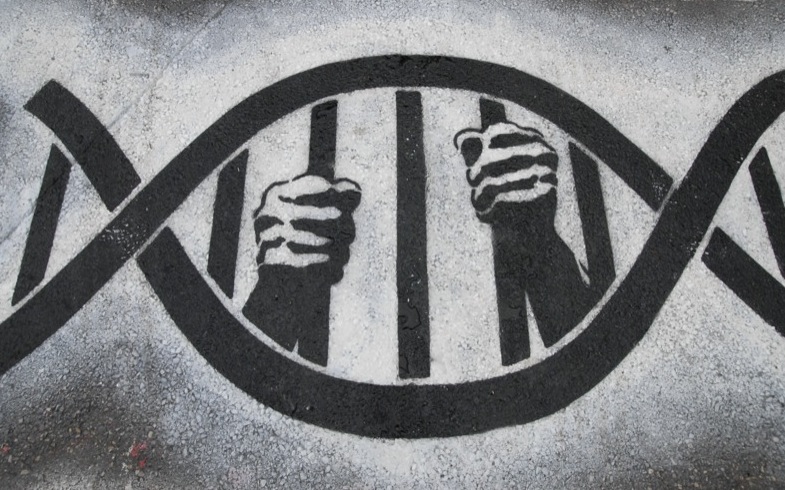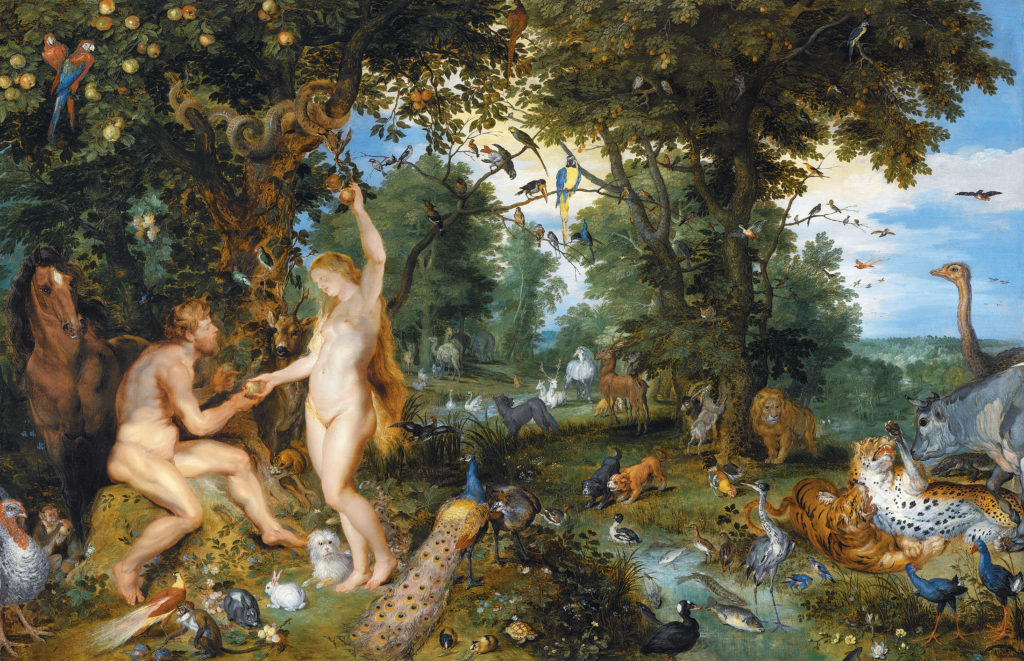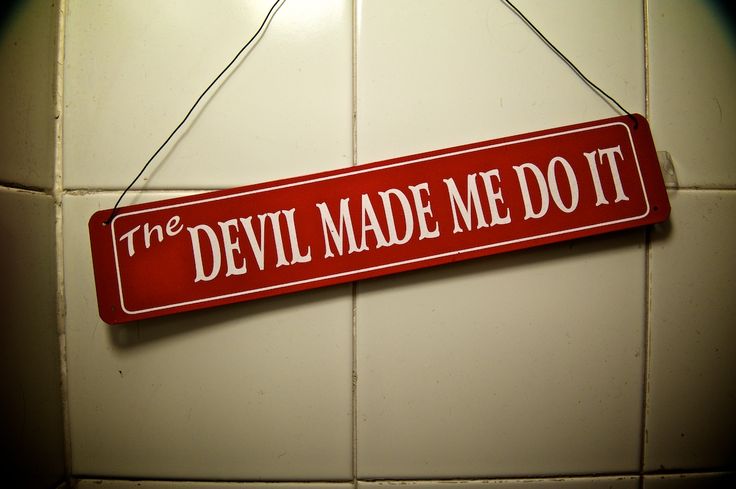Has it ever struck you as pathetically absurd when you hear a defense attorney for a convicted fiend seek mitigation for him, arguing that he was made the man-monster he is by terrible childhood abuse? It seems a last-ditch tactic. But it may just work because Americans are sometimes too full of the milk of human kindness. And within such kindness lurks a hidden and most convenient assumption: that individuals are the product, not as the Buddha says, of their decisions, but of their influences, purely passive, receiving an imprint like a seal on malleable wax. Here we have yet another example of the Slave Morality despised and bemoaned by Nietzsche. Cowards love to avoid responsibility, culpability, by attacking the very notion of responsibility and therefore of culpability. If no one is really culpable, then I am not culpable. If everyone is a passive recipient of conditioning, and of nothing else, then so am I. I might feel indignant at leniency shown murderers and child molesters, but I, too, am willing to give the monster a pass if that’s the price of my being able to shirk any responsibility for my own inadequacies. We moral cowards need to stick together!
Is it really impossible to imagine that an individual has the ability to defy conditioning and environment? If it is impossible, then there is no such thing as an individual. We are then no more than instantiations of sociological factors and trends, patterns of dysfunction. The individual as such, in that case, does not “exist,†because, as Paul Tillich liked to point out, to ex-ist means to “stand out†from the field of Being. But if we are merely one more stitch in a socio-economic and psychological tapestry, we are not individuals because there is no individuality.
I think also of Martin Heidegger, who prophetically urged his readers to awaken from their collective slumber, their passive acquiescence to Das Mann, the faceless mass of humanity governed by whatever currents cause the river of humanity to drift this way or that. He had in mind the habitual laziness that tempts us to let peer pressure supply our values and beliefs. Peter Berger discussed it in terms of the Sociology of Knowledge: we will blithely share the assumptions and values of our “plausibility structure†until we come to realize that’s what we’ve been doing and snap out of it, questioning everything in order to make our own “cognitive universe†for ourselves. That, Berger called “the Heretical Imperative.†Harvey Cox posited that the Original Sin of Adam and Eve in the Eden myth was accidie, letting the serpent tell them what to do. Dostoyevsky imagined Jesus getting crucified because the religious authorities of his day wanted to protect their troubled flock from having to face the challenge of Jesus to take up the heavy cross of freedom. If we do, to return to Heidegger, we will have at last attained authentic existence, heeding the call of our long-stifled authentic self.
So what is it that determines whether we are authentic individuals or passive marionettes? Simply, it is the decision that one is going to be an individual. To decide to take and to accept responsibility. It might be that, even if we deny it, we are nonetheless merely products of greater forces which combine to create us. Considering ourselves to be individuals may be kidding ourselves. Even this may be a role assigned us without our knowing. Theoretically, we might be able to posit threads of influence that inclined us toward rebelliousness. Would that vitiate our self-confidence as “rugged individualists� I guess it would. But that’s where understanding ends.
Kant figured that, logically, all things must transpire according to an iron chain of cause and effect, including our decisions, choices, and actions. But what does it mean that we can come to know this? Does it not imply a superiority to that chain-link determinism? Does the fictional character know that he is a fictional character? Would that not tear asunder the fictive narrative of which he forms a part? Kant inferred that our sense of autonomous freedom is a “Transcendental,†a condition, a perspective, which is not derived from the data of sense perception but which is nonetheless necessary for us to make sense of the world of perceived data. Otherwise we could not even recognize the process of cause and effect that we are in that moment transcending! Freedom is a necessary hypothesis—even if we don’t understand how it could be. We find ourselves at the top of Mount Everest without knowing how we got there.
Perhaps this sense of autonomy is an illusion. If so, consider it a legal fiction. The defense attorney can play the air violin of excuse-making as sweetly as he wants, but we shall have to stop up our ears and proceed on the assumption that his client did not have to commit the atrocity he did. We must take for granted that he could have resisted the temptation; he could have controlled his compulsion. We will consider him an autonomous individual responsible for his actions even if he does not think so, even if his lawyer begs us not to. If we don’t, if we never do, you can see what must happen to our justice system. The Slave Morality will mean that nothing is anyone’s fault, and then there is no punishment for anything. We will consider rapes, murders, etc., to be blows of fate, like hurricanes, earthquakes, disease plagues. No one’s fault, just rotten luck. This, too, is where understanding ends. Where it must end. Oh, it may be that we would have erred in our chain of reasoning if it led us to mitigate responsibility to this extent. But even if psycho-social determinists are right, “that way lies madness.†We will have become too smart for our own good, even for our own survival.
Some atheists, like E.O. Wilson, reluctantly agree that people seem to need to believe in God, and that without belief in God (whatever you want to call him, her, or it) there can be no morality. What they mean is that, sociologically, traditional societies operated under what Peter Berger called a “Sacred Canopy†of shared rules, values, beliefs, and mores, all of which were sanctioned and buttressed by the belief that God/gods had ordained these things for their pet humans, and that sooner or later there would be divine reprisals for anyone who stepped out of line. It would undermine morality if everyone came to realize that these codes were originally the pragmatic inventions of mere humans like themselves. The result would be a state of anomie, confused normlessness in the society at large, from which we suffer right now.
Okay, sociologists and philosophers who understand how the system works don’t need it; like Nietzsche’s Superman, they can create their own values (even as the original framers did!). But, like the Gnostic Illuminati, some of them, e.g., Wilson, realize this is strong medicine, too strong for the “weaker brethren.†Perhaps it would be the wiser course not to rock their boat. The truth, I think, does not always “work.†And that is where understanding ends.
So says Zarathustra.




One Response to Where Understanding Ends